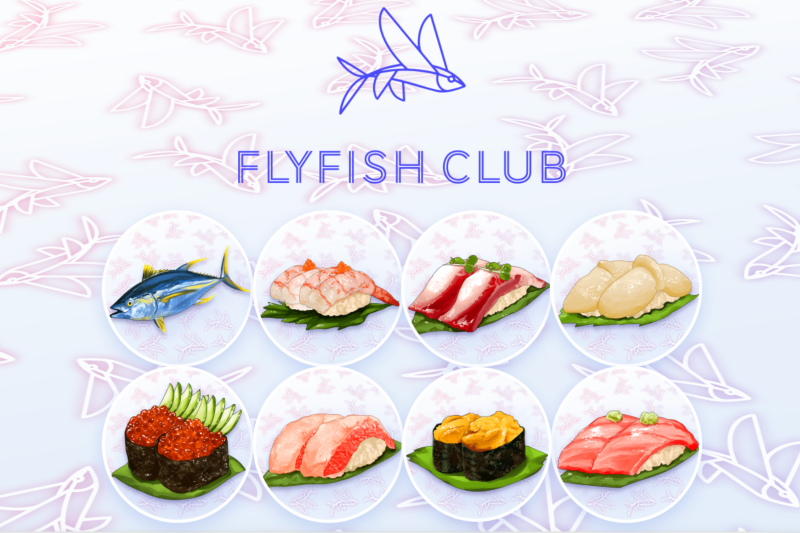It’s an old-school idea in a new world package: access to Manhattan’s new Flyfish Club will be restricted to exclusive members. Your ticket? A cryptocurrency NFT, or non-fungible token.
On January 18, the VCR Group-founded venture announced that it’s coming to Manhattan early next year as the world’s “first NFT restaurant.” In order to partake of the “globally inspired” seafood menu, diners will need to flash Flyfish digital tokens. And if you choose to move on from the Flyfish Club? Simply sell or lease your membership token on the secondary market. This secondary market is, in fact, already booming.

Flyfish Club membership was available via Ethereum’s cryptocurrency, Ether. Founded by VCR Group founders, chairman Gary Vaynerchuk, CEO David Rodolitz, and chief culinary officer Josh Capon, NFTs originally sold tokens for 2.5 ETH each, or around $8,300. Flyfish sold 1,501 tokens this month to raise around $15 million for the venture. On Open Sea’s secondary market, Flyfish tokens are now trading for about 5.2 ETH or about $14,000, minimum.
By utilizing NFT’s, Flyfish Club creates a loyal, members-only community similar to a vintage dining club enabled by a cutting-edge financial mode, which will (hopefully) allow the Flyfish Club to deliver an exceptional and sustainable product for many years.
After opening, token holders can eat at the Flyfish Club whenever they want with a prior reservation up to 14 days in advance. NFT owners can make as many reservations as they’d like per month with payment for food and beverages accepted in U.S. dollars. Each token member can bring any number of guests as specified by their reservation and within reason. Flyfish club’s dining room will consist of two-person, four-person, six-person, and eight-person tables with an intimate dining room available to reserve for small events.
Related Guides
- A Guide to Salmon’s Health Benefits
- How to Clean and Cook Dungeness Crab
- Woodinville Wine’s Guide to Tasting Rooms
- Best Sauce Recipes
Like any members-only club, there’s an even more elite level to those who want to pay for access. A second, Omakase token, offered originally for 4.25 Ethereum (about $14,300), earns clients all membership benefits plus entry into an exclusive Omakase room. (Omakase is an extended sushi dinner, usually eaten at a sushi counter, where the chef prepares one piece of fish at a time, describing its name and origin, and preparing another dish based on the discussion and diner preferences.)
Another unique part about this model is that unlike dining or country clubs, there are no applications or recurring annual fees. Members can lease or resell their membership, which could be considered an investment with the possibility that NFT tokens continue to rise in value.
With NFT’s booming. Vaynerchuk — seemingly always at the cutting edge of commerce — and his VCR partners are betting that people will buy Flyfish tokens as social status — similar to any luxury item — and will remain based on the quality of the experience. Based on its popularity already, it’s reasonable to expect more NFT restaurants to follow suit.



